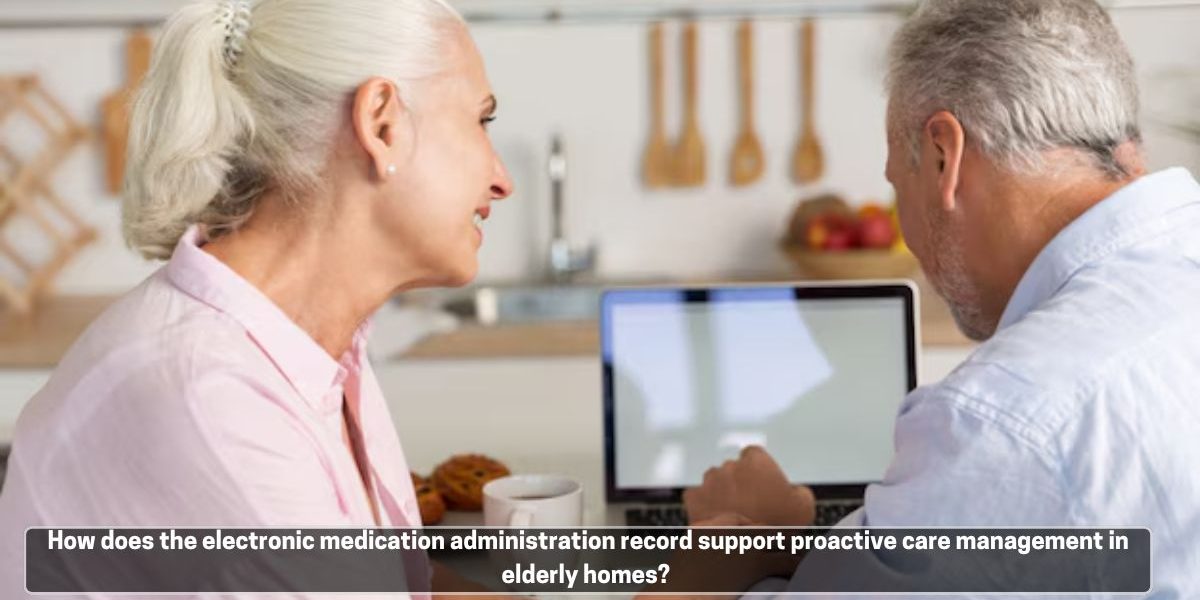Managing medication for residents in elderly care facilities is no easy task. For care home managers in the UK, ensuring that residents receive the right medication at the right time is crucial to maintaining their well-being and preventing health complications. This is where Electronic Medication Administration Records (eMAR) come in as a real game-changer. An effective eMAR system can provide caregivers with the tools they need to manage care proactively.
Comprehensive and accessible records
eMAR systems provide a complete view of each resident’s medication history, current medications, and any known allergies—all in one place. This means that all authorised healthcare providers have access to the same up-to-date information. Imagine how much easier it is when everyone involved in a resident’s care—from carers to GPs—has the full picture at their fingertips. This accessibility supports proactive care management by allowing healthcare professionals to anticipate issues, make informed decisions quickly, and adjust care plans as needed. This is particularly important for elderly residents who often have complex medication regimens and multiple chronic conditions. Having a unified record helps avoid mistakes and ensures everyone is working together effectively.
Real-time updates for proactive care
The health status of elderly residents can change rapidly, and being able to respond quickly is important. eMAR systems provide real-time updates, meaning any changes to medication regimens, new allergies, or updated lab results can be documented immediately. This ensures that all healthcare professionals involved in a resident’s care are working with the most current information available.
For care home managers, real-time updates mean that the team can act quickly to adjust care plans as needed. Whether it’s a change in medication dosage or a new health concern that needs to be addressed, eMAR helps ensure that everyone is informed promptly. This level of responsiveness is crucial in preventing complications and ensuring the best possible outcomes for residents. It also means that families can feel more confident about the level of care their loved ones are receiving, knowing that changes are managed efficiently.
Improved communication and collaboration
Communication is at the heart of good care, especially in settings where multiple caregivers and healthcare professionals are involved. eMAR systems help improve communication among nurses, doctors, pharmacists, and other healthcare providers through secure messaging features. When all members of the care team are on the same page, it leads to more coordinated and effective care. This is especially important for elderly residents, who may have multiple caregivers. Better collaboration also means that issues are addressed quickly, allowing for proactive care.
Safety and error reduction
One of the biggest challenges in elderly care is ensuring that medications are administered safely. eMAR systems come with several features that enhance proactive care:
Built-in alerts: eMAR systems can be programmed with alerts that flag potential issues, such as drug interactions, allergies, or incorrect dosages. These alerts are incredibly valuable for elderly residents, who are often on multiple medications and may be at higher risk of adverse drug events. For care home managers, these alerts provide an extra layer of security, helping the team catch potential problems before they become serious issues.
Bar-code scanning: Many eMAR systems also include bar-code scanning technology, which helps ensure that the right medication is given to the right resident at the right time. This reduces the risk of human error in medication administration, which is particularly important in elderly care settings where the consequences of mistakes can be severe. For care home managers, bar-code scanning adds another safeguard to medication administration.
By using eMAR, care homes can provide a higher standard of care, focusing on preventing issues before they escalate. To know more, book a demo with us.







